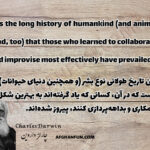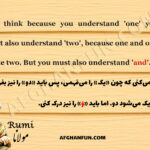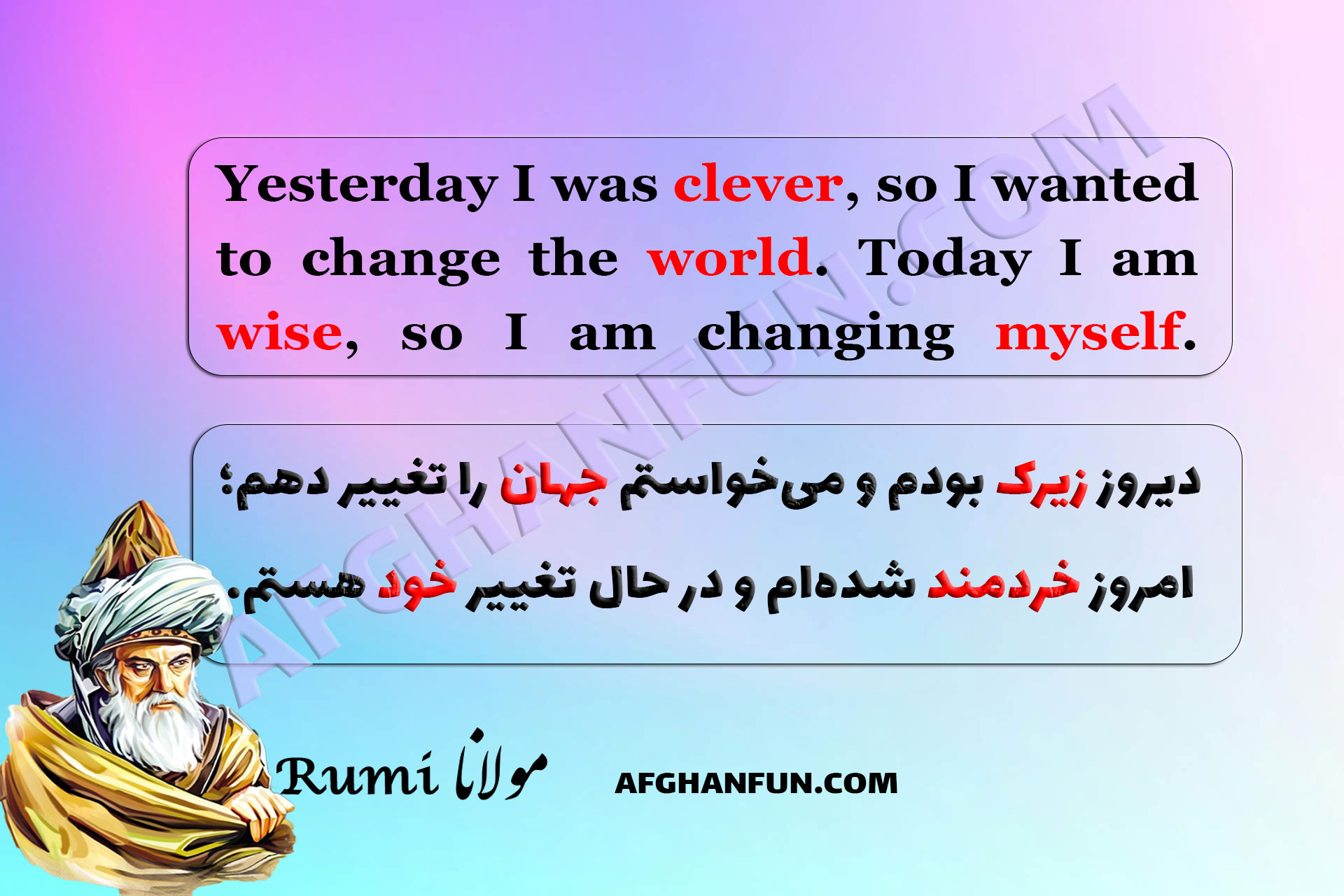True Change Begins Within: A Rumi Lesson in Wisdom
Yesterday I was clever, so I wanted to change the world.
Rumi
Today I am wise, so I am changing myself.
دیروز زیرک بودم و میخواستم جهان را تغییر دهم؛
مولانا جلال الدین محمد بلخی
امروز خردمند شدهام و در حال تغییر خود هستم.
مولانا در این نقل قول به تحول درونی اشاره دارد. او بیان میکند که در جوانی تلاش داشته جهان بیرونی را تغییر دهد، اما درک عمیقتری از زندگی به او آموخته است که تغییر واقعی از خود آغاز میشود. حکمت در تغییر خویش است، نه الزاماً در تغییر دیگران یا دنیا.
Дирӯз зирак будам ва мехостам ҷаҳонро тағйир диҳам;
МАВЛОНО ҶАЛОЛУДДИН МУҲАММАДИ БАЛХӢ
Имрӯз хирадманд шудаам ва худамро тағйир медиҳам.
Молона мегӯяд, ки вақте ҷавон ва доноӣ кам буд, мехостам ҷаҳонро тағйир диҳам. Вале акнун, ки хирадманд гаштаам, фаҳмидам, ки беҳтарин роҳи беҳбудӣ – ин ислоҳ кардани худ аст.
بالأمس كنتُ ذكيًا، فأردتُ تغيير العالم؛
جلال الدين الرومي
أما اليوم فأصبحتُ حكيمًا، لذلك أغيّر نفسي.
يركز مولانا في هذا الاقتباس على التحوّل الداخلي. في شبابه، كان يسعى لتغيير العالم الخارجي، لكن مع النضج، أدرك أن الحكمة الحقيقية تكمن في تغيير نفسه أولًا. فالتحوّل الداخلي هو مفتاح التغيير العميق، وليس فرض التغيير على الآخرين أو على العالم.
Comprehensive Analysis of Rumi Quote:
Yesterday I was clever, so I wanted to change the world.
Today I am wise, so I am changing myself.
In this profound quote, Rumi reflects on the nature of wisdom and personal transformation. He contrasts two stages of his life: a younger self, full of ambition and driven by the desire to change the external world, and a wiser self who has come to realize the power of inner change.
“Yesterday I was clever, so I wanted to change the world” captures the mindset of youth and idealism. When we are young and full of energy, we often think that the world’s problems can be fixed through sheer willpower and effort. There is a sense of confidence, even arrogance, in thinking we can single-handedly reshape everything around us to align with our vision.
However, as we grow older, we often learn that changing the external world is far more challenging and sometimes beyond our control. Rumi’s transition to “Today I am wise, so I am changing myself” highlights a shift in perspective. The wisdom he speaks of is the understanding that the only realm truly within our power to change is our inner self. By focusing on transforming our attitudes, beliefs, and actions, we can create a ripple effect that influences the world around us.
This quote also resonates with spiritual and philosophical traditions that emphasize inner growth as the key to a fulfilling life. The concept is echoed in Eastern philosophies, such as Buddhism, which teaches that the path to enlightenment begins with self-awareness and self-mastery. Even in modern psychology, the focus on personal development and emotional intelligence underscores the importance of looking inward to bring about meaningful change.
Rumi’s insight is timeless because it highlights a universal truth: true wisdom is not about imposing change on the world but about cultivating a deeper understanding of oneself. By shifting our focus from the external to the internal, we can attain a sense of peace and clarity. Ultimately, when we change ourselves, we often inspire others to do the same, creating a collective transformation that begins within each individual.
In essence, Rumi’s message is a call to recognize that the world is a mirror reflecting our inner state. To change the world, we must first change ourselves. This wisdom teaches humility, patience, and the realization that the journey of self-transformation is an ongoing process that can lead to profound shifts not just in our own lives, but in the lives of those around us.











